-
 Bitcoin
Bitcoin $117300
1.99% -
 Ethereum
Ethereum $3884
5.89% -
 XRP
XRP $3.268
9.33% -
 Tether USDt
Tether USDt $1.000
0.02% -
 BNB
BNB $783.0
1.78% -
 Solana
Solana $173.6
3.51% -
 USDC
USDC $0.9999
0.00% -
 Dogecoin
Dogecoin $0.2193
7.00% -
 TRON
TRON $0.3380
0.30% -
 Cardano
Cardano $0.7769
5.08% -
 Stellar
Stellar $0.4350
9.36% -
 Hyperliquid
Hyperliquid $40.23
5.78% -
 Sui
Sui $3.739
6.95% -
 Chainlink
Chainlink $18.30
9.46% -
 Bitcoin Cash
Bitcoin Cash $581.7
2.11% -
 Hedera
Hedera $0.2577
5.51% -
 Ethena USDe
Ethena USDe $1.001
0.00% -
 Avalanche
Avalanche $23.08
4.23% -
 Litecoin
Litecoin $121.7
2.24% -
 UNUS SED LEO
UNUS SED LEO $8.962
-0.34% -
 Toncoin
Toncoin $3.332
1.36% -
 Shiba Inu
Shiba Inu $0.00001273
3.39% -
 Uniswap
Uniswap $10.35
6.84% -
 Polkadot
Polkadot $3.818
4.01% -
 Dai
Dai $1.000
0.01% -
 Bitget Token
Bitget Token $4.446
2.13% -
 Cronos
Cronos $0.1491
4.96% -
 Monero
Monero $255.4
-9.78% -
 Pepe
Pepe $0.00001099
4.80% -
 Aave
Aave $284.0
8.01%
Is Kraken's KYC strict? What materials need to be submitted?
Kraken's strict KYC process requires users to submit personal info, ID, proof of address, and source of funds docs for tiered verification, ensuring compliance and security.
May 15, 2025 at 05:42 pm
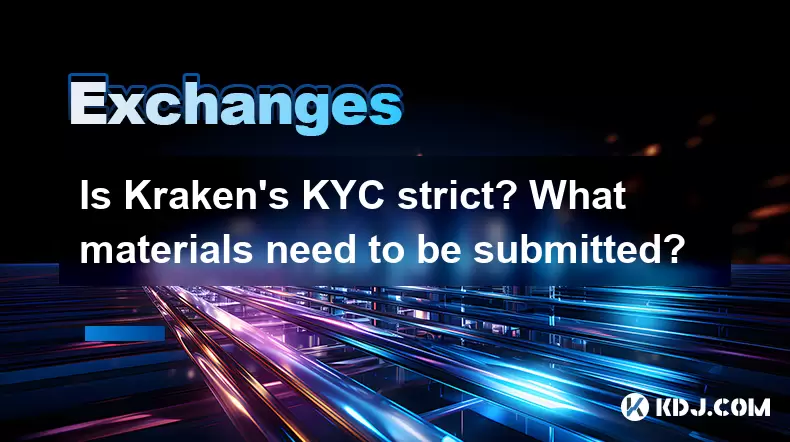
Is Kraken's KYC strict? What materials need to be submitted?
Kraken, one of the leading cryptocurrency exchanges, has a robust Know Your Customer (KYC) process to ensure compliance with regulatory standards and to protect its users from fraud. The strictness of Kraken's KYC can be a concern for many users, especially those who value privacy. In this article, we will explore the details of Kraken's KYC process, the strictness of their requirements, and the materials you need to submit to complete the verification process.
Understanding Kraken's KYC Process
Kraken's KYC process is designed to verify the identity of its users to prevent illegal activities such as money laundering and fraud. The process is divided into several tiers, each with increasing levels of verification and corresponding access to features and services. The strictness of Kraken's KYC can be seen in the detailed requirements for each tier, ensuring that users are thoroughly vetted before gaining access to advanced trading options and higher withdrawal limits.
Tier 1 Verification: Starter Level
The first tier of Kraken's KYC, known as Starter, is the most basic level of verification. To complete Tier 1, users need to provide their full name, date of birth, country of residence, and phone number. This level of verification allows users to deposit and withdraw fiat currencies, trade cryptocurrencies, and use the Kraken mobile app. However, the withdrawal limits are relatively low, and some features are not available at this tier.
Tier 2 Verification: Intermediate Level
The second tier, known as Intermediate, requires more detailed information and documentation. To complete Tier 2, users must submit a government-issued photo ID, such as a passport or driver's license, and a proof of address, such as a utility bill or bank statement. This level of verification increases the withdrawal limits and provides access to additional features, such as margin trading and funding methods. The strictness of Kraken's KYC is evident in the requirement for physical documents, which are thoroughly reviewed to ensure their authenticity.
Tier 3 Verification: Pro Level
The third and highest tier of Kraken's KYC, known as Pro, is designed for professional traders and institutional clients. To complete Tier 3, users must provide a source of funds document, such as a bank statement or pay stub, in addition to the documents required for Tier 2. This level of verification offers the highest withdrawal limits and access to all of Kraken's features and services. The strictness of Kraken's KYC at this level is intended to ensure that only legitimate users with verifiable sources of funds can access advanced trading options.
Materials Needed for KYC Verification
To complete Kraken's KYC process, users need to gather and submit the following materials:
For Tier 1:
- Full name
- Date of birth
- Country of residence
- Phone number
For Tier 2:
- Government-issued photo ID (passport, driver's license, or national ID card)
- Proof of address (utility bill, bank statement, or government-issued document showing your address)
For Tier 3:
- Source of funds document (bank statement, pay stub, or other financial document showing your income or assets)
How to Submit KYC Materials on Kraken
Submitting KYC materials on Kraken is a straightforward process, but it requires attention to detail to ensure that all documents are properly prepared and submitted. Here is a step-by-step guide on how to submit your KYC materials:
- Log in to your Kraken account and navigate to the "Verification" section in the account settings.
- Select the verification tier you wish to complete (Starter, Intermediate, or Pro).
- Enter the required personal information for Tier 1 verification, including your full name, date of birth, country of residence, and phone number.
- Upload the required documents for Tier 2 and Tier 3 verification, ensuring that the images are clear and legible.
- For the government-issued photo ID, make sure the document is not expired and that all four corners are visible in the image.
- For the proof of address, ensure that the document is dated within the last three months and that your name and address are clearly visible.
- For the source of funds document, ensure that the document shows your name and financial details, and that it is dated within the last three months.
- Review your submissions carefully before clicking the "Submit" button to ensure that all information and documents are accurate and complete.
The Strictness of Kraken's KYC Process
Kraken's KYC process is considered strict due to the detailed information and documentation required at each verification tier. The exchange's commitment to compliance with regulatory standards and the prevention of illegal activities is evident in the thorough review process for submitted documents. Users may experience delays in the verification process if their documents are unclear, incomplete, or do not meet the required standards. Additionally, Kraken may request additional information or documentation if there are any discrepancies or issues with the initial submissions.
Common Issues and Solutions in Kraken's KYC Process
Users may encounter several common issues when going through Kraken's KYC process. Here are some potential problems and their solutions:
- Unclear or low-quality images: Ensure that all uploaded documents are clear and legible. If your document is rejected due to poor quality, retake the image in a well-lit area and ensure that all required information is visible.
- Expired documents: Make sure that your government-issued photo ID and proof of address documents are not expired. If they are, obtain updated versions before submitting them to Kraken.
- Incomplete information: Double-check that all required fields are filled out accurately and that all necessary documents are included in your submission. Missing information can cause delays in the verification process.
- Discrepancies in personal information: Ensure that the information provided in your KYC submission matches the information on your submitted documents. Any discrepancies can lead to rejection of your verification request.
Frequently Asked Questions
Q: How long does the KYC verification process take on Kraken?
A: The duration of the KYC verification process on Kraken can vary depending on the tier of verification and the completeness of your submission. Generally, Tier 1 verification can be completed within a few minutes, while Tier 2 and Tier 3 may take several days to a week, as the documents need to be reviewed manually.
Q: Can I use a digital copy of my documents for KYC verification on Kraken?
A: Yes, Kraken accepts digital copies of documents for KYC verification. However, the images must be clear and legible, and all required information must be visible. It is recommended to use a scanner or a high-quality camera to ensure the best possible image quality.
Q: What happens if my KYC verification is rejected on Kraken?
A: If your KYC verification is rejected on Kraken, you will receive an email notification explaining the reason for the rejection. You can then address the issue and resubmit your documents for review. Common reasons for rejection include unclear images, expired documents, or discrepancies in personal information.
Q: Is it possible to complete Kraken's KYC process without submitting a proof of address?
A: No, a proof of address is required for Tier 2 and Tier 3 verification on Kraken. The proof of address must be a document dated within the last three months that clearly shows your name and address. Acceptable documents include utility bills, bank statements, or government-issued documents showing your address.
Disclaimer:info@kdj.com
The information provided is not trading advice. kdj.com does not assume any responsibility for any investments made based on the information provided in this article. Cryptocurrencies are highly volatile and it is highly recommended that you invest with caution after thorough research!
If you believe that the content used on this website infringes your copyright, please contact us immediately (info@kdj.com) and we will delete it promptly.
- Cold Wallet Crypto in 2025: The Future is Now, Ya'll
- 2025-08-08 05:10:13
- MAGACOIN, SOL, and ADA: A Tale of Shifting Tides in Crypto
- 2025-08-08 05:10:13
- SHIB Price, PEPE, and the Memecoin Supercycle: Who Will Reign Supreme?
- 2025-08-08 05:50:12
- Pudgy Penguins Price Prediction: Google Trends & Breakout Signals
- 2025-08-08 05:50:12
- UAE Crypto Regulation: SCA and VARA Unite to Streamline the Future of Digital Assets
- 2025-08-08 05:55:48
- MAGACOIN Finance: The Presale Phenomenon Rocking the Crypto World
- 2025-08-08 05:55:48
Related knowledge
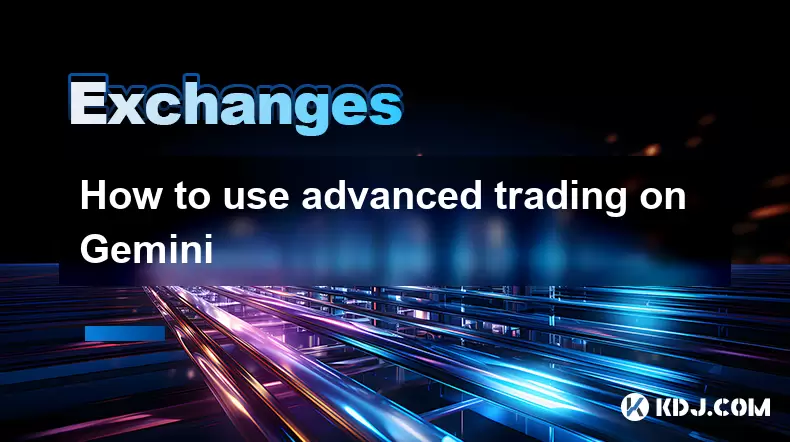
How to use advanced trading on Gemini
Aug 08,2025 at 04:07am
Understanding Advanced Trading on GeminiAdvanced trading on Gemini refers to a suite of tools and order types designed for experienced traders who wan...
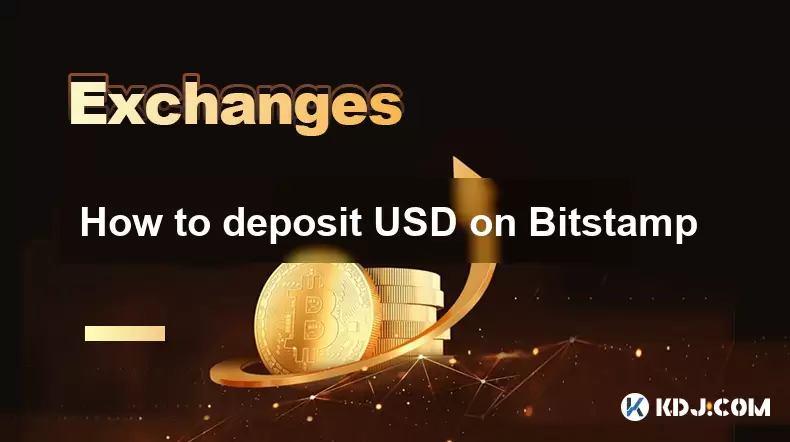
How to deposit USD on Bitstamp
Aug 07,2025 at 05:18pm
Understanding Bitstamp and USD DepositsBitstamp is one of the longest-standing cryptocurrency exchanges in the industry, offering users the ability to...
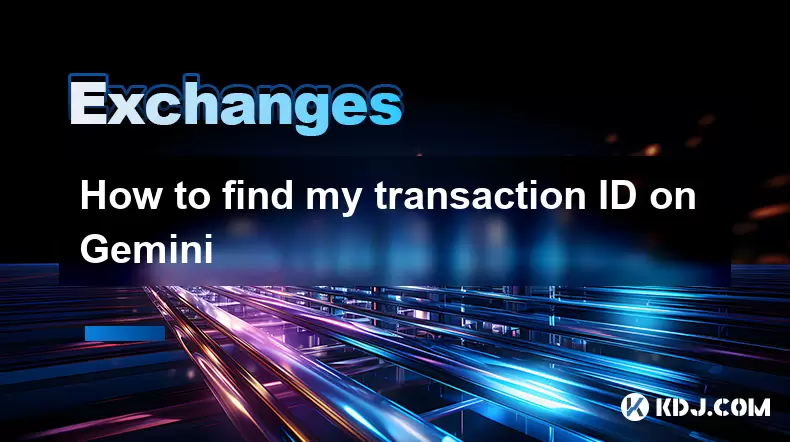
How to find my transaction ID on Gemini
Aug 08,2025 at 12:50am
Understanding the Transaction ID in Cryptocurrency ExchangesA transaction ID (TXID) is a unique alphanumeric string that identifies a specific transfe...
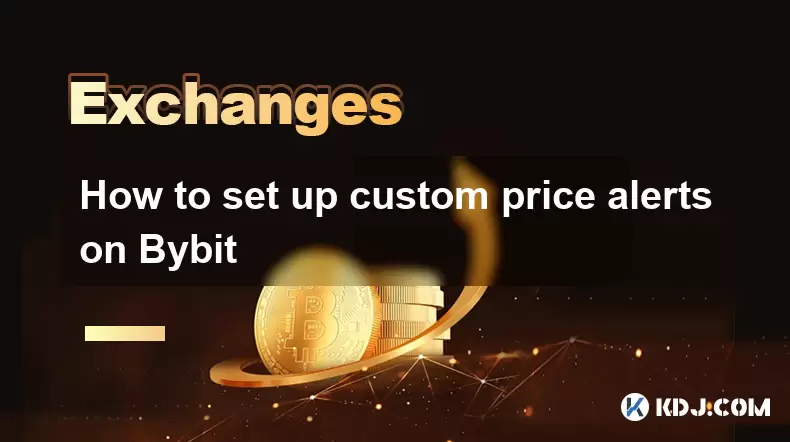
How to set up custom price alerts on Bybit
Aug 07,2025 at 04:31pm
Understanding Price Alerts on BybitPrice alerts on Bybit are essential tools for traders who want to stay informed about significant price movements i...
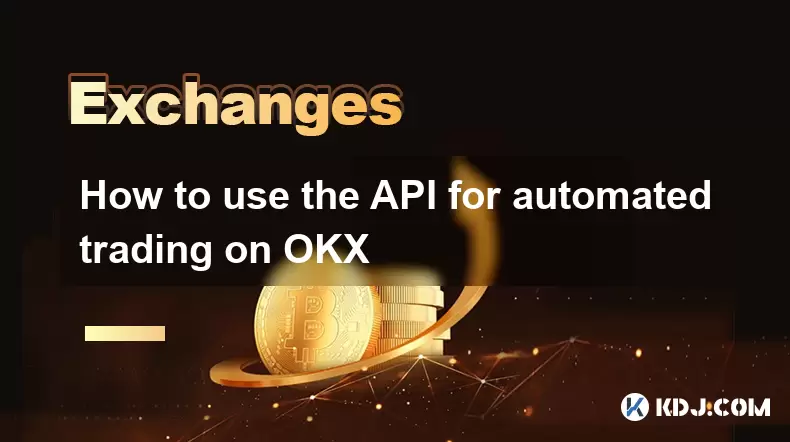
How to use the API for automated trading on OKX
Aug 07,2025 at 05:21pm
Understanding the OKX API for Automated TradingThe OKX API provides a powerful interface for users to automate their trading strategies, access real-t...
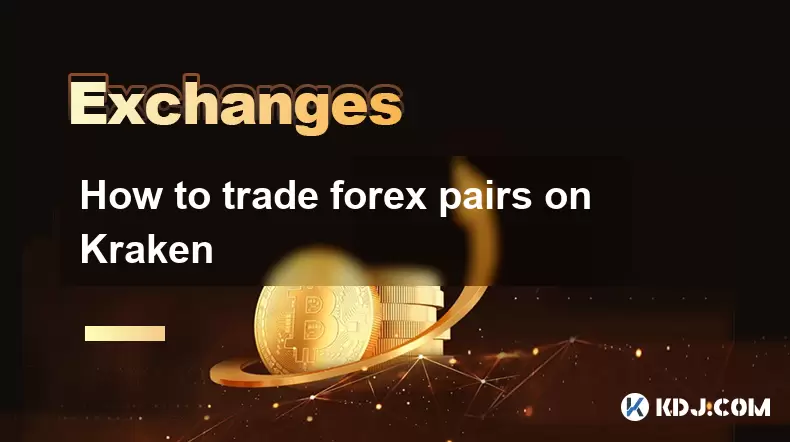
How to trade forex pairs on Kraken
Aug 07,2025 at 11:49pm
Understanding Forex Pairs on KrakenKraken is primarily known as a cryptocurrency exchange, but it also supports select forex pairs through its Kraken ...

How to use advanced trading on Gemini
Aug 08,2025 at 04:07am
Understanding Advanced Trading on GeminiAdvanced trading on Gemini refers to a suite of tools and order types designed for experienced traders who wan...

How to deposit USD on Bitstamp
Aug 07,2025 at 05:18pm
Understanding Bitstamp and USD DepositsBitstamp is one of the longest-standing cryptocurrency exchanges in the industry, offering users the ability to...

How to find my transaction ID on Gemini
Aug 08,2025 at 12:50am
Understanding the Transaction ID in Cryptocurrency ExchangesA transaction ID (TXID) is a unique alphanumeric string that identifies a specific transfe...

How to set up custom price alerts on Bybit
Aug 07,2025 at 04:31pm
Understanding Price Alerts on BybitPrice alerts on Bybit are essential tools for traders who want to stay informed about significant price movements i...

How to use the API for automated trading on OKX
Aug 07,2025 at 05:21pm
Understanding the OKX API for Automated TradingThe OKX API provides a powerful interface for users to automate their trading strategies, access real-t...

How to trade forex pairs on Kraken
Aug 07,2025 at 11:49pm
Understanding Forex Pairs on KrakenKraken is primarily known as a cryptocurrency exchange, but it also supports select forex pairs through its Kraken ...
See all articles

























































































